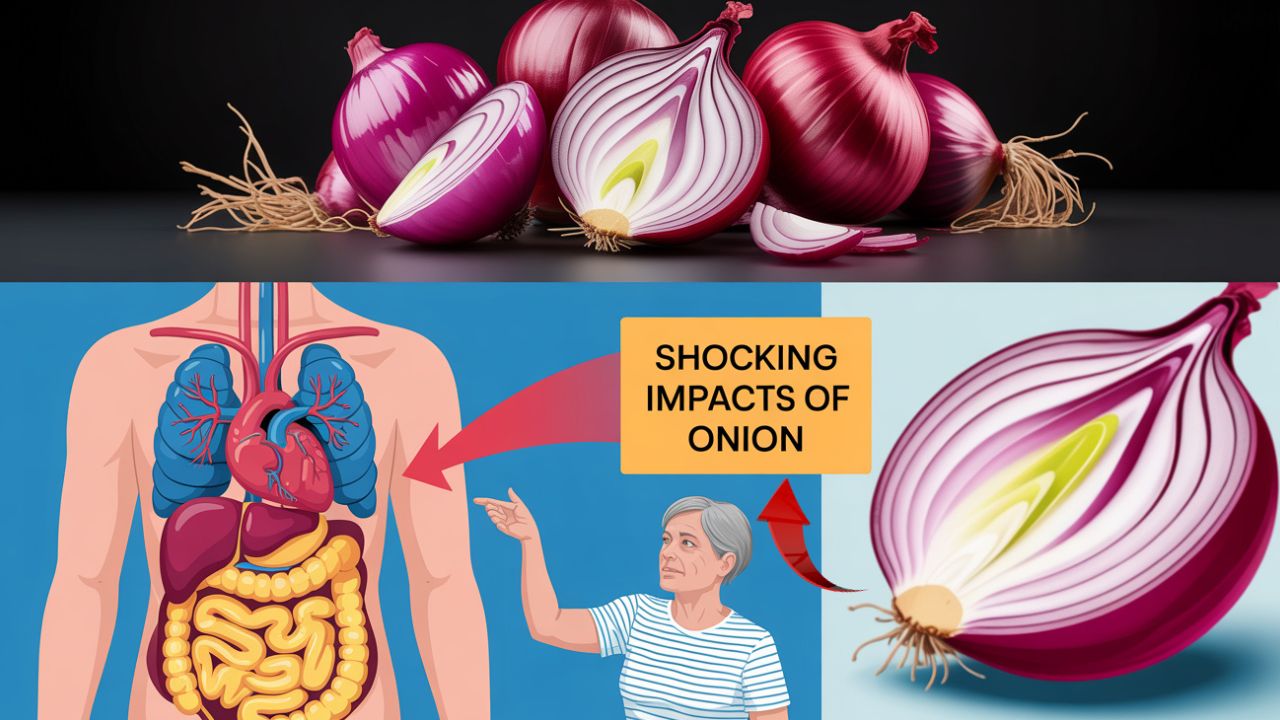Onions are a ubiquitous ingredient found in kitchens around the world. From savory soups and stews to fresh salads and spicy stir-fries, onions add flavor, aroma, and depth to countless dishes. But these humble bulbs are more than just a culinary staple — they’re also nutritional powerhouses with a surprising array of health benefits. Rich in antioxidants, vitamins, and unique compounds, onions can support everything from heart health to immune function.
In this article, we’ll explore the many ways onions can benefit your health, backed by science and centuries of traditional use.
A Brief History of Onions
Onions have been cultivated for over 5,000 years and were highly valued in ancient civilizations. Egyptians revered them for their supposed spiritual significance and even buried them with pharaohs. In ancient Greece and Rome, athletes consumed onions to enhance strength and stamina. Their widespread use in traditional medicine systems — including Ayurveda and Traditional Chinese Medicine — also speaks to their long-standing reputation as a healing food.
Nutritional Profile of Onions
Before diving into their health benefits, let’s take a look at what makes onions so nutritious. A medium-sized onion (about 110 grams) contains:
- Calories: 44
- Carbohydrates: 10 grams
- Sugar: 4 grams (naturally occurring)
- Fiber: 1.9 grams
- Vitamin C: 20% of the recommended daily intake (RDI)
- Vitamin B6: 5% of the RDI
- Folate: 5% of the RDI
- Potassium: 4% of the RDI
Onions are also rich in plant compounds like quercetin, sulfur compounds (such as allicin), and flavonoids that contribute significantly to their health-promoting effects.
1. Heart Health Support
One of the most studied benefits of onions is their role in promoting heart health. The sulfur compounds and antioxidants found in onions can help:
- Reduce blood pressure: Quercetin, a powerful antioxidant in onions, has been shown to reduce high blood pressure in some individuals.
- Lower cholesterol: Studies suggest that onions may help decrease levels of LDL (bad) cholesterol while increasing HDL (good) cholesterol.
- Prevent blood clotting: Onions contain natural blood-thinning agents that may reduce the risk of clot formation, a major cause of heart attacks and strokes.
2. Powerful Antioxidant Properties
Onions are loaded with antioxidants, which help combat oxidative stress and inflammation — two key contributors to chronic disease. Red onions, in particular, are high in anthocyanins, a type of flavonoid with strong antioxidant effects.
Consuming antioxidant-rich foods like onions can help protect cells from damage, slow aging, and lower the risk of diseases such as cancer and diabetes.
3. Anti-Inflammatory Effects
Chronic inflammation is at the root of many health conditions, including arthritis, diabetes, and even depression. Onions contain compounds that suppress inflammation in the body.
Quercetin has been shown to reduce markers of inflammation, making onions a potentially useful dietary addition for individuals with inflammatory conditions.
4. Cancer-Fighting Potential
Emerging research suggests that onions may help reduce the risk of certain cancers. The sulfur compounds and flavonoids in onions are believed to interfere with cancer cell growth and promote apoptosis (cell death) in malignant cells.
Population studies have linked high onion consumption with a lower risk of cancers, particularly stomach, colorectal, and prostate cancers.
5. Immune System Boost
The vitamin C and phytochemicals in onions play a key role in supporting immune health. Vitamin C enhances the function of white blood cells, which defend the body against pathogens.
Additionally, onions have antimicrobial properties that may help the body resist infections caused by bacteria, viruses, and fungi.
6. Blood Sugar Regulation
Onions may be beneficial for people with diabetes or those at risk of developing it. Several studies have found that onion extract can help reduce fasting blood glucose levels.
The sulfur compounds in onions are thought to enhance insulin production and sensitivity, helping to regulate blood sugar levels naturally.
7. Digestive Health and Gut Support
Onions are a natural source of prebiotics — non-digestible fibers that feed the beneficial bacteria in your gut. A healthy gut microbiome is essential for digestion, nutrient absorption, and even mood regulation.
Prebiotics found in onions, such as inulin and fructooligosaccharides, encourage the growth of friendly bacteria like bifidobacteria and lactobacilli.
8. Bone Density and Health
Though often overlooked, onions may play a role in maintaining strong bones. A study involving perimenopausal and postmenopausal women found that those who consumed onions regularly had greater bone density and a reduced risk of hip fracture.
This effect may be due to onion’s ability to suppress oxidative stress and inflammation, both of which contribute to bone loss.
9. Respiratory Health and Allergy Relief
Onions have long been used in folk remedies for respiratory ailments such as colds, coughs, and asthma. The quercetin in onions has antihistamine properties that may help reduce allergy symptoms and inflammation in the airways.
Some people find relief from respiratory issues by consuming raw onions or inhaling the vapor from cooked onions.
10. Skin and Hair Benefits
The antioxidants and sulfur in onions can also benefit the skin and hair. Onion juice has been used topically to treat acne, scars, and hair loss.
Some small studies and anecdotal reports suggest that applying onion juice to the scalp may improve hair thickness and reduce hair fall by improving circulation and nourishing hair follicles.
How to Add More Onions to Your Diet
Incorporating onions into your meals is easy and delicious. Here are some ideas:
- Raw: Add thinly sliced onions to salads, sandwiches, or salsas.
- Cooked: Sauté, grill, or caramelize onions for a rich, sweet flavor.
- Soups and stews: Use onions as a base for flavorful broths and sauces.
- Pickled: Quick-pickled onions make a tangy topping for tacos or burgers.
- Juice or extract: Some health enthusiasts consume small amounts of onion juice for concentrated benefits (though the flavor is intense).
A Word of Caution
While onions are safe for most people, they can cause digestive issues in those with irritable bowel syndrome (IBS) or a sensitivity to FODMAPs — a group of fermentable carbs. Cooking onions can reduce these effects. Also, excessive consumption may lead to bad breath or body odor due to sulfur compounds.
Conclusion
Onions are far more than a flavor enhancer — they’re a nutrient-rich superfood with a wide range of health benefits. From supporting heart and bone health to improving immunity and fighting inflammation, onions deserve a place in every healthy diet. Whether raw, cooked, or pickled, incorporating more onions into your meals could be a simple yet powerful step toward better health.
Next time you chop an onion, remember: you’re not just preparing a meal — you’re nourishing your body in ways you might not have imagined.









